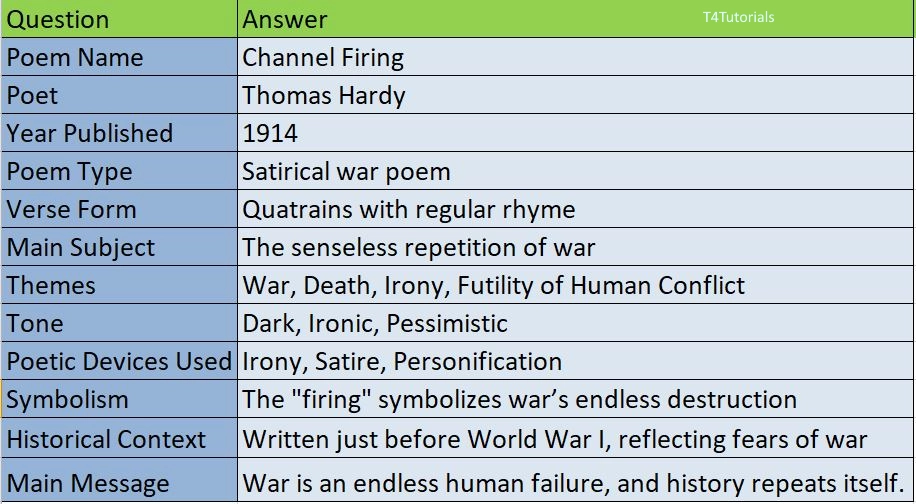Summary:
Thomas Hardy’s Channel Firing is a somber and ironic poem that reflects on the futility of war. Written in 1914, just before World War I, the poem presents a conversation between the dead in their graves and God. The loud sound of naval gunfire wakes the dead, making them think Judgment Day has arrived. However, God reassures them that it is not the end of the world—only humans preparing for another war. The poem critiques the endless cycle of conflict and mankind’s failure to learn from history. Hardy’s tone is darkly humorous, with God appearing weary of human violence, emphasizing the senseless destruction caused by war.
15
Score: 0
Attempted: 0/15
Subscribe
| Question | Answer |
| Poem Name | Channel Firing |
| Poet | Thomas Hardy |
| Year Published | 1914 |
| Poem Type | Satirical war poem |
| Verse Form | Quatrains with regular rhyme |
| Main Subject | The senseless repetition of war |
| Themes | War, Death, Irony, Futility of Human Conflict |
| Tone | Dark, Ironic, Pessimistic |
| Poetic Devices Used | Irony, Satire, Personification |
| Symbolism | The “firing” symbolizes war’s endless destruction |
| Historical Context | Written just before World War I, reflecting fears of war |
| Main Message | War is an endless human failure, and history repeats itself. |